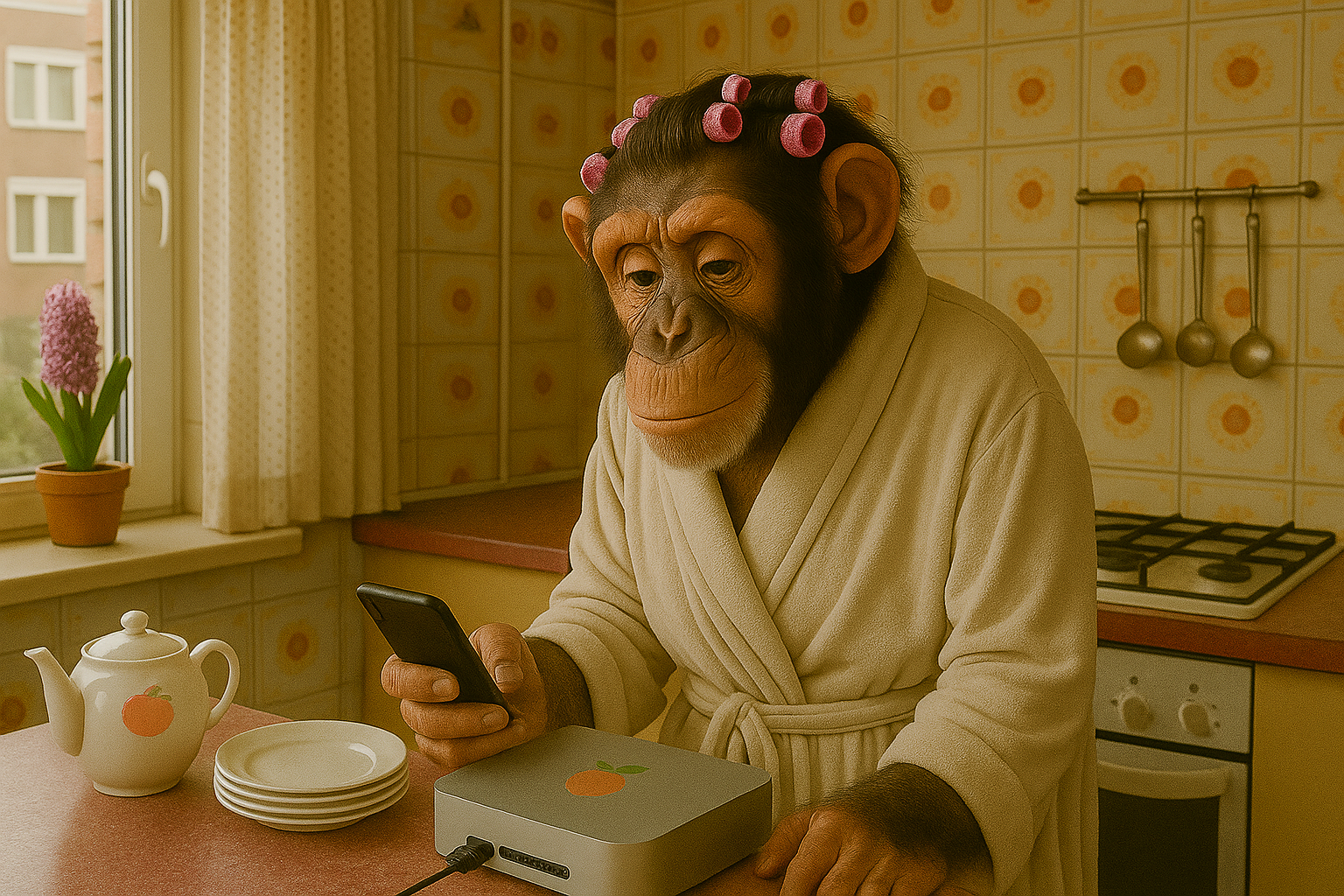An Uncomfortable Truth About the New World of Work (aka the AI Revolution...)
Three years ago, I was considering early retirement. Today, I'm more productive than ever – at 58. What happened? AI has transformed me from an experienced freelancer into a one-man enterprise. But this success story has a bitter aftertaste.
The Uncomfortable Reality: Junior Jobs Are Disappearing
A recent Harvard study of 285,000 companies confirms what I experience daily: demand for junior positions is collapsing dramatically while seniors are more sought-after than ever¹. Researchers Seyed M. Hosseini and Guy Lichtinger demonstrate that companies adopting AI reduced their junior workforce by 7.7% within six quarters – while simultaneously growing senior positions.
Stanford economist Erik Brynjolfsson reports even more drastic figures: young workers aged 22-25 in AI-exposed occupations have seen a 13% employment decline since 2022². The reason? One experienced professional with AI tools easily replaces an entire junior team – at a fraction of the cost.
My Productivity Explosion in Numbers:
-
Concept development: 70% faster using GPT-4 as a brainstorming partner
-
Presentation creation: 85% time savings through automated formatting
-
Market analyses: What used to take days, I accomplish in hours
-
Client communication: AI-assisted briefings hit the mark 90% of the time
These personal experiences mirror McKinsey's research: companies in AI-exposed sectors are experiencing five times higher productivity gains than less exposed industries³.
"Age is not a barrier when you find passion in what you do. The real secret lies in keeping your curiosity alive, continuing to learn, and not letting the fear of time stop you from enjoying life" Anthony Hopkins
The Experience Dividend: Why Seniors Are Unbeatable
Here's the crucial point: AI doesn't make everyone more productive – it exponentially amplifies existing competence. The PwC AI Jobs Barometer 2025 shows: workers with advanced AI skills command a 56% wage premium, more than double the previous year⁴. As a senior, I know:
-
Which questions to ask AI (20 years of experience in 20 seconds)
-
When AI output is bullshit (and it happens more often than you'd think)
-
How to combine customer psychology with AI efficiency
-
Which shortcuts lead to success (and which to dead ends)
A junior with the same tools? Produces perfectly formatted mediocrity in record time. Stanford researchers confirm: AI can replace "codified knowledge" – the textbook learning from education. What it cannot replace is the tacit knowledge from years of experience⁵.
The Provocative Thesis: We're Creating a Competence Monopoly
Here's the uncomfortable truth: We seniors are currently benefiting from a technology that's simultaneously destroying the next generation. The career ladder? Dismantled. The bottom rungs? Gone.
SignalFire, a venture capital firm, documented a 50% decline in hiring of graduates with less than one year of work experience at major tech companies between 2019 and 2024⁶. The problem isn't AI itself – it's how we're using it. While we multiply our productivity, we're denying an entire generation the chance to gain professional experience.
The bitter irony: In 10 years, we'll be desperately searching for seniors but won't have any – because we're not training juniors today. McKinsey already warns: 40% of average lifetime earnings come from work experience⁷. Without entry-level positions, this critical component is missing.
Why Gen Z Can't (Yet) Keep Up
Controversial observation: Many graduates aren't struggling with the technology, but with fundamental workplace realities. A Deloitte study shows that 55% of young workers worry about their job security, while 70% see AI as an opportunity to learn new skills⁸. The challenge lies in the paradox:
-
Frustration tolerance: AI makes mistakes – learning to handle them comes through experience
-
Customer understanding: Tools can do everything except read between the lines
-
Prioritisation: 100 AI-generated ideas are worthless without the instinct for the right one
This isn't generational bashing – it's simply reality. These skills develop through years of failure and learning. Exactly those years that are missing now. The World Economic Forum emphasises: skills sought by employers in AI-exposed occupations are changing 66% faster than in less exposed areas⁹.
The Solution? Radical Rethinking
Instead of further "optimising" juniors away, we need to find new paths. McKinsey and PwC agree: the future lies in hybrid models¹⁰:
-
Hybrid Training Models: Seniors mentor remote juniors on AI-supported projects
-
Specialisation over Generalisation: Focus on what AI can't (yet) do – emotional intelligence, creative problem-solving, ethical decisions
-
Experience Transfer: Systematic knowledge transfer to AI-native generations
-
Skills-First Hiring: Away from formal degrees, towards demonstrable competencies
My Conclusion: Success with Responsibility
As a senior freelancer, I'm experiencing my most productive years. AI has created freedoms I never dreamed of. But I also see the responsibility: to use this technology to build bridges, not walls.
The uncomfortable truth: We're the last generation that grew up without AI – and simultaneously the first to exploit its full potential. What we make of it will determine the future of an entire industry.
The McKinsey Global Institute forecasts additional global economic activity of $13 trillion from AI by 2030¹¹. Whether this prosperity benefits everyone or just a few, we decide today.
What's your experience? Are you seeing similar trends in your industry? Let's discuss – controversially too.
#AI #Freelancing #FutureOfWork #Leadership #Productivity #AITransformation #EuropeanTech
References
-
Hosseini, S. M., & Lichtinger, G. (2025). Seniority-biased technological change: Evidence from generative AI adoption. Harvard University. Study of 285,000 US companies on AI's impact on different seniority levels.
-
Brynjolfsson, E., Chandar, B., & Chen, R. (2025). The impact of generative AI on early-career workers. Stanford University Working Paper. Analysis of ADP payroll data from 25 million US workers.
-
McKinsey Global Institute. (2024). The state of AI: How organizations are rewiring to capture value. McKinsey & Company.
-
PwC. (2025). Fearless Future: 2025 Global AI Jobs Barometer. Analysis of nearly one billion job advertisements from six continents.
-
Brynjolfsson, E. (2025). Quoted in: "Stanford study: AI threatens entry-level jobs." Axios, 26 August 2025.
-
SignalFire. (2025). The changing landscape of entry-level tech employment. Venture Capital Research Report.
-
McKinsey Global Institute. (2022). Human capital at work: The value of experience. McKinsey & Company.
-
Deloitte. (2024). AI in the workplace: Impact on early career workers. Deloitte Insights.
-
World Economic Forum. (2025). The Future of Jobs Report 2025. Geneva: World Economic Forum.
-
McKinsey & Company. (2024). The human side of generative AI: Creating a path to productivity. McKinsey Digital.
-
McKinsey Global Institute. (2023). The economic potential of generative AI: The next productivity frontier. McKinsey & Company.

